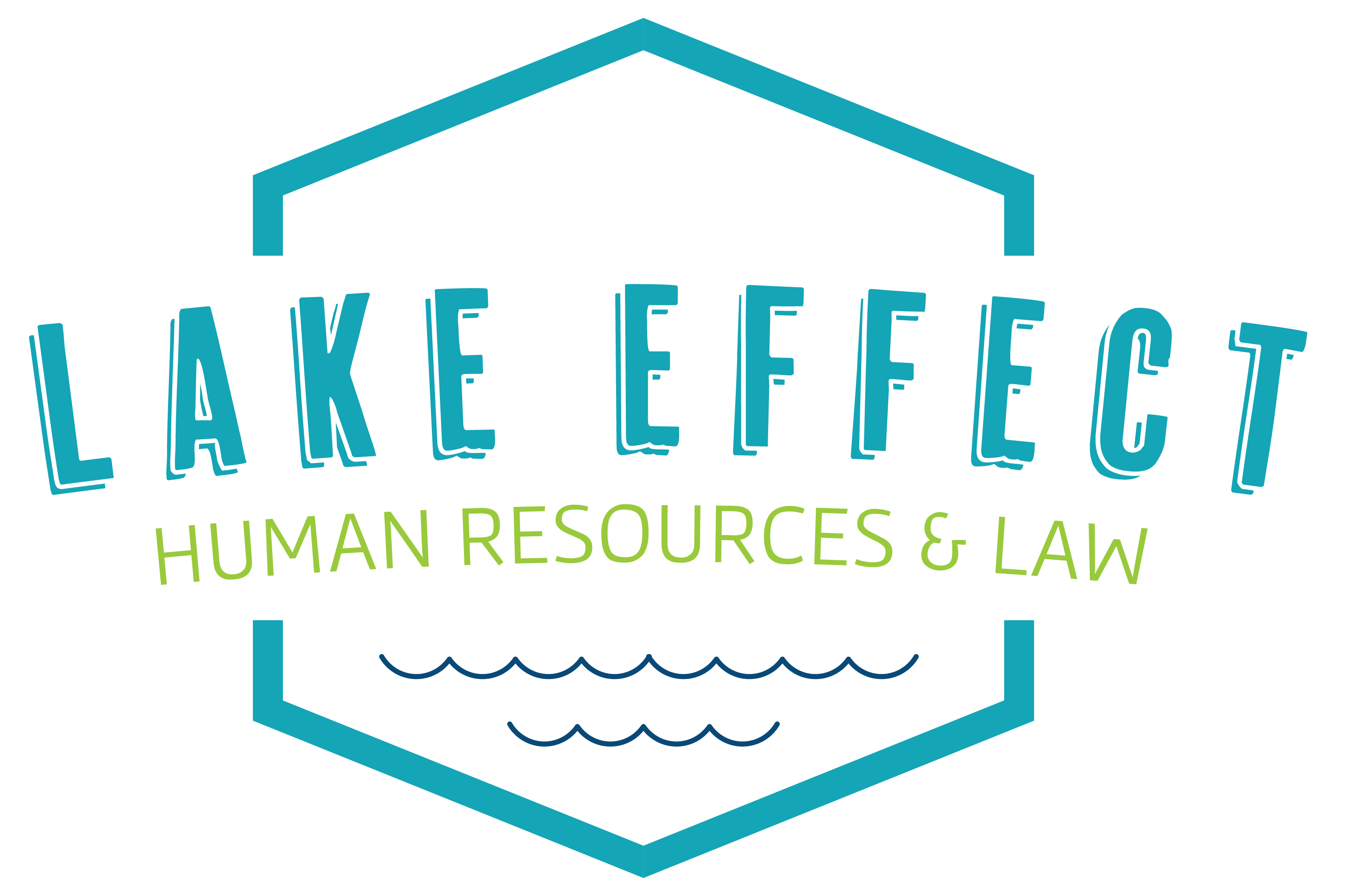***Update, January 27, 2021***
UPDATED BY EXECUTIVE ORDER – CLICK HERE FOR UPDATED INFORMATION
****
Over the last few weeks, the Department of Labor (DOL) has been busy ticking items off its to-do list. We have seen action on everything from tip pooling to employee notices to travel time.
Tip Pooling and Tip Credits
In October, 2019, Lake Effect blogged on the Department of Labor’s (DOL) proposed new Fair Labor Standards Act (FLSA) regulations on tip pooling, tip credit, and payments to tipped employees. The DOL published the Final Rule on December 22, 2020, implementing most of the changes to tip pooling and tip payments that were proposed in 2019. See also a helpful summary and FAQ provided by the DOL. The Final Rule is effective March 1, 2021.
This new rule will be helpful for restaurant, bar, and hospitality employers making plans to expand or resume operations in the coming months. Many hospitality employers have implemented – or may now consider implementing – tip pools to supplement employee compensation, improve morale, and incentivize all workers to maximize performance. In short, tip pooling can be a useful tool to enhance employee recruitment and retention.
The new tip credit and tip pooling regulations include the following:
- No tips for managers, supervisors, or employers: The regulations expressly prohibit employers from keeping employees’ tips and likewise prohibit managers and supervisors from sharing any employee tips, regardless of whether the employer takes a tip credit and regardless of the type of tip pool implemented. Employers who retain pooled tips or share them with managers or supervisors will be subject to civil penalties under the new regulations.
- Relying on the FLSA duties test, a manager or supervisor is defined as “any employee (1) whose primary duty is managing the enterprise or a customarily recognized department or subdivision of the enterprise; (2) who customarily and regularly directs the work of at least two or more other full-time employees or their equivalent; and (3) who has the authority to hire or fire other employees, or whose suggestions and recommendations as to the hiring or firing are given particular weight.” This also includes any workers “who own at least a bona fide 20 percent equity interest in the enterprise in which they are employed and who are actively engaged in its management.”
- No 80/20 rule for tip credits: The regulations remove the long-standing 80/20 rule that required employers who take a tip credit (see our prior blog for an overview of tip credits) to carefully track the amount and timing of non-tipped work that employees perform. Under the new regulations, employers may take the tip credit regardless of the amount of non-tipped work an employee is performing provided the normally non-tipped work is performed “contemporaneously with” or “for a reasonable time immediately before or after” their normally tipped work duties.
- Employers who take a tip credit are limited to a traditional tip pool: Employers who take a tip credit may create only a “traditional tip pool,” which is limited to employees who “customarily and regularly” receive tips.
- Employers who do not take a tip credit have two tip pool options: Employers who do not take a tip credit now have two options for tip pooling. Employers may create a “traditional tip pool” and/or a “nontraditional tip pool,” which includes employees who do not regularly receive tips, such as cooks and dishwashers.
- Record-keeping of tip credit and tip pool: Employers who take a tip credit or create tip pools must identify on their payroll records each employee who receives tips and maintain records of the weekly or monthly amount of tips received by employees, as reported by the employee to the employer. Employers can rely on employees’ information tracked on IRS Form 4070.
- Timing of payment of tip pool tips: Employers must pay their employees the pooled tips no later than the date on which regular wages are paid to employees and, for credit card based tips, “as soon as practicable after the regular payday.” This further supports the requirement that employers must not retain tips.
Electronic Posting of Required Labor Law Posters
Acknowledging that telework will likely continue for the foreseeable future in many workplaces, the DOL provided new guidance regarding labor law posters. In a field assistance bulletin issued on December 29, 2020, the DOL confirmed that employers can satisfy applicable employee notice obligations by providing required labor law postings to employees on the internet or an intranet. Employers also must display hard copies of the posters in the actual workplace for applicants and employees who are unable to telework.
Compensation for Personal Activity Travel Time
Again acknowledging the continuation of telework, the DOL issued a wage and hour opinion letter on December 31, 2020 addressing the issue of travel time to/from work and home when an employee works part of the day remotely and part of the day in the worksite, and engages in personal activities during their travel time. The DOL reiterated that a non-exempt employee does not need to be paid for time the employee is off duty and is not working, nor for commuting time. The DOL also reinforced that the continuous workday doctrine would not apply to the fact patterns presented by the employer because, during the travel time for personal activities, the employee was clearly off duty, could use their time for their own purposes, and could choose when they would resume work at home or at the worksite. Likewise, the employee’s commuting time to and from work, during which time the employee performed no work duties, was not compensable commuting time.
~~~~
For additional information and discussion of DOL rule making, rules, and guidance, please see Lake Effect’s prior blogs on wage and hour issues. We will continue to closely monitor all developments in this area and provide you with important updates.
Lake Effect is here to answer your questions about federal and state issues affecting employers. We continue to monitor important legal and HR developments, as well as COVID-related updates from federal, state, and local authorities. Please keep watching our blogs and emails for these important updates, as well as discussions of how compliance meets culture. To dive into these issues, contact us at info@le-hrlaw.com or 1-844-333-5253.




